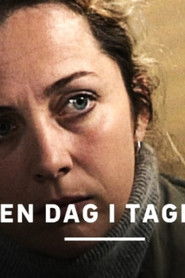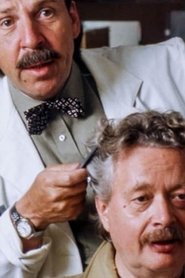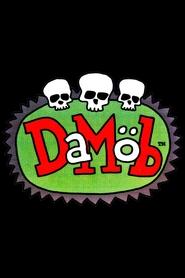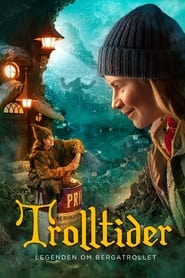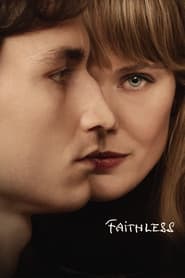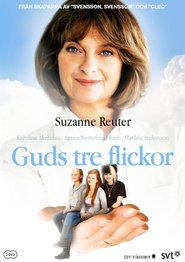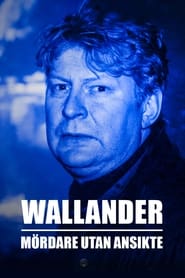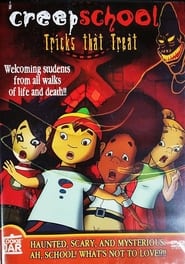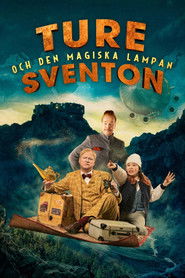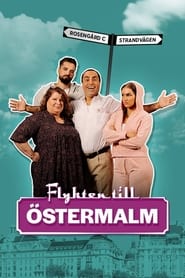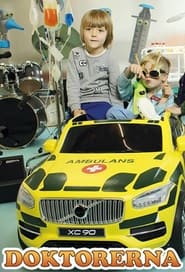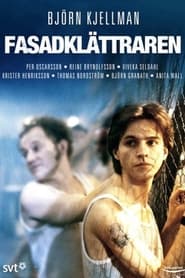Svt TV Series - Page 2
-
En dag i taget
1999
En dag i taget
1999
-
Da Möb
2001
star 7Da Möb is a Swedish animated series, created by Magnus Carlsson, about three youngsters who form a rap band called Da Möb. They try to get a record deal. It aired in the United States from 2001–2002 and in Sweden from 2002-2003. The name Da Möb comes from The Mob with a joke heavy metal umlaut. -
Vem bor här?
2015
star 4.5Five strangers guess who lives where, they visit each other's houses and at the end they guess which house is for whom. -
S:t Mikael
1998
S:t Mikael
1998
-
Trolltider – legenden om Bergatrollet
2023
star 5.7Trolltider – the legend of the Bergatrollet is SVT's Christmas calendar 2023, directed by Lisa Farzaneh from a script by Ola Norén and Roland Ulvselius. The series is a "reboot" to SVT's Christmas calendar Trolltider from 1979 with partly the same characters but a new story. -
Faithless
2025
star 5David falls in love with his best friend Mark's wife, the beautiful Marianne, and their love affair has painful consequences for both families. -
Guds tre flickor
2009
Guds tre flickor
2009
-
LasseMajas detektivbyrå
2006
star 7Christmas is approaching and the chief of police in the town of Valleby intends to put on a Christmas play in memory of his parents, but a lot of crime gets in the way. He therefore enlists the help of two young detectives, Lasse and Maja. Lasse and Maja have their own detective agency that solves crimes. When the orchestra learns that the police chief has not gathered enough actors, they become increasingly suspicious of his amateurish methods. -
Mördare utan ansikte
1995
star 6.3It is winter on the plains of Skåne coast. Farmer woken gets up and goes over to the neighboring farm. The sight that meets him is terrible. His neighbor John Lövgren lying on the floor with broken face. His wife Mary is sitting on a chair with a noose around his neck and her nightgown nersölat of blood. Before she dies in the hospital, she has time to say a word as soon leak out into the media, "Foreign" Inspector Kurt Wallander in Ystad police leading the investigation will soon receive anonymous threats by telephone. When the city's refugee camp on fire and a Somali refugee murdered, he understands that those who threatened him serious. And realize that it is now a race against time. And, against a ruthless opponent. A killer with no face ... -
Creepschool
2004
star 10Creepschool is a Swedish, French and Canadian animated series by Alphanim, Cookie Jar Entertainment, Happy Life and France 3 about four kids who find themselves at a spooky boarding school. The basic concept was created by Torbjörn Jansson, which was then substantially re-worked and developed by the co-head-writers Kristina Mansfeld and Per Carlsson into the series it is today. They also wrote all the storylines. Creepschool has been compared to Gravedale High. -
Ture Sventon och den magiska lampan
2023
Ture struggle to find the magic lamp in order to prevent the criminal called Ville Vessla from making his evil wishes. -
Flykten till Östermalm
2023
star 5In Sven Melander's last comedy series, we follow the Mursa family who, after inheriting hundreds of millions of kroner, move from Rosengård in Malmö to Strandvägen in Stockholm. -
Doktorerna
2018
Doktorerna
2018
-
Kvinnor emellan
2004
Kvinnor emellan
2004
-
Fasadklättraren
1991
Fasadklättraren
1991
